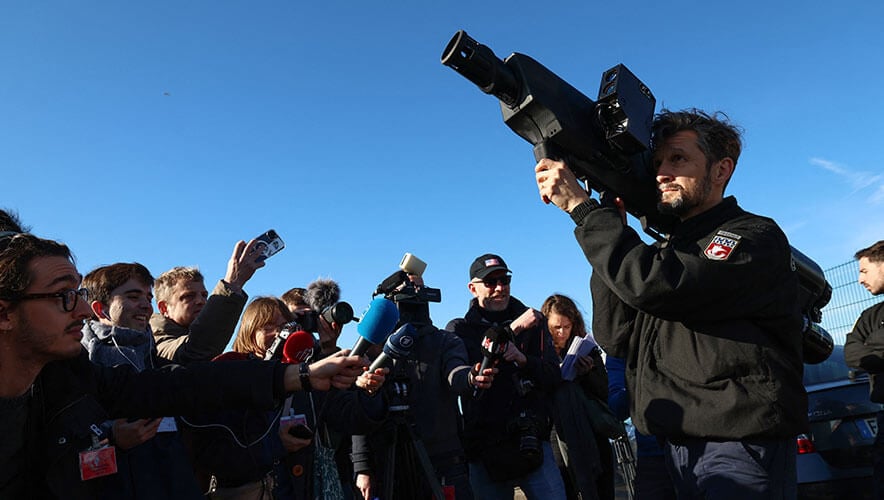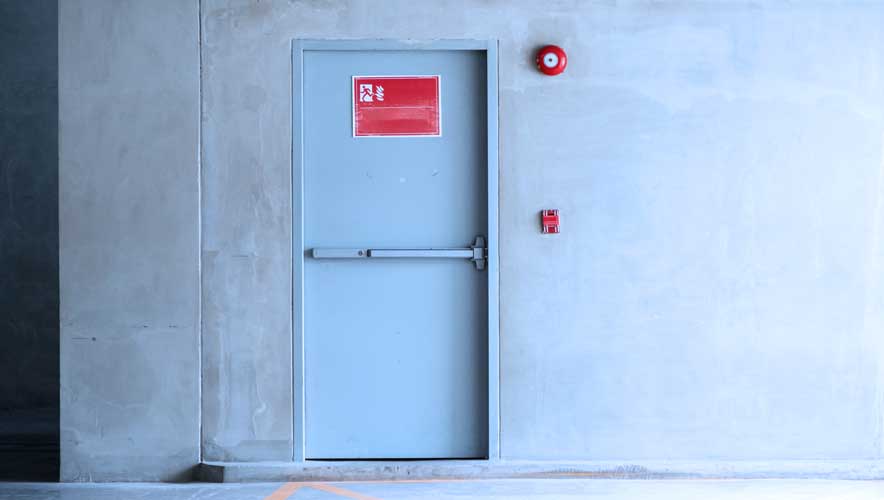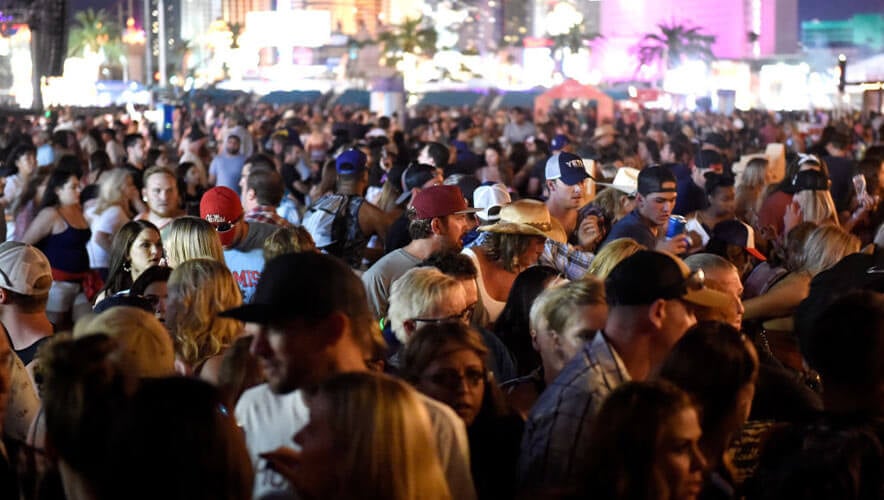Paris Olympics Present Unique Security Challenges
It is unfortunate, but true: We live in a world where some people will commit mass murder to make a point, and the knowledge and means to do so have never been more ubiquitous. However, the knowledge of how to stop them and the will to do so is also robust.
Enter the 2024 Summer Olympics in Paris, France. The centerpiece of the “Games Wide Open” slogan adopted for the quadrennial event is an Opening Ceremony parade of athletes planned not for a stadium like every other parade of athletes at previous games, but along the city’s iconic Siene River.
The flotilla with 10,500 athletes will wind its way along 6 river kilometers from the Austerlitz Bridge to the Trocadéro near the Eiffel Tower. The country delegations will parade by on 160 boats that will pass under eight bridges on the roughly 45-minute route.
Original plans called for more than 600,000 spectators watching the parade for free while crowded along the banks of the Siene. Initial ideas are one thing, but sometimes security plays the part of killjoy. Those original plans have been drastically cut back as those in charge of security saw the risk as too great. Interior Minister Gérald Darmanin told the French Sénat earlier this month that there would be 104,000 paid seats close to the Seine and 220,000 free but ticketed seats on the upper quays. He also told the lawmakers that the ministry would undertake more than one million security investigations before the start of the games. Even with the diminished scale, an open-air Opening Ceremony with a 4-mile footprint presents a major site-hardening challenge.
Tickets to those 324,000 seats will not be made generally available. The Associated Press described how the process will work:
“This means that tourists from France or elsewhere, as well as ordinary Parisians, won’t be able to sign up for free access. Instead, access to the ceremony will be allocated via quotas to select residents of towns or regions hosting Olympic events, local sports federations, and others chosen by organizers or their partners.… Those invited will then need to undergo security checks and will receive QR codes to pass security barriers.”
“To manage crowd movement, we can’t tell everyone to come,” Darmanin said. “For security reasons that everyone understands, notably the terrorist threat of recent weeks, we are obliged to make it free but contained.”
The Summer and Winter Olympics alternate every two years in a pattern established in the 1980s, interrupted briefly by the COVID pandemic. As major events go, they represent high-profile targets because it is an international competition that promotes peace and cooperation among nations. In a testament to the commitments that host cities and Olympic organizers make for security and safety, there have been two high-profile Olympics terror incidents, none in the past 26 years.
In 1972, members of the Palestine Liberation Organization (PLO) kidnapped and held hostage the Israeli athletes at the games in Munich, ultimately leading to a gun battle that left nine Israeli athletes, one German police officer, and five of the kidnappers dead. Then at the 1996 Olympic Games in Atlanta, a lone actor built a pipe bomb and planted it at Centennial Olympic Park where the city held Olympic-related festivities. The bomb killed one person and injured more than 100. The bomber was not captured until years later.
The Olympics always cause a heightened security posture, and this year may seem especially acute. Two separate major regional conflicts present extra danger to Paris and the Olympics.
It’s been 54 years since the Munich attacks, but another Palestinian group—Hamas—attacked Israel in October 2023, igniting the ongoing Israel-Hamas war in Gaza. Hamas has ties to Iran, which has ties to a variety of radical, terror-embracing groups. Israel faces increased criticism for inhumane conduct as part of its war with Hamas, and while the conflict has sparked skirmishes elsewhere, a broader conflict in the region that was feared has not yet materialized. Actors such as Yemen’s Houthi rebels, who are disrupting shipping in the Red Sea to protest Israel’s actions, show that other groups are willing to take action and could prove difficult to combat. Combine that with a spate of knife attacks in France over the last couple of years, many of them motivated by radicalized Islamist beliefs, and security officials have plenty of concerns when it comes to securing an event expected to draw 15 million visitors.
The other conflict that could present danger to the games is the war between Russia and Ukraine after Russia invaded its neighbor in 2022. Like many Western nations, France has supported Ukraine in a variety of ways throughout the war. Russia could have additional motivation to disrupt the games because the International Olympic Committee ruled the country was ineligible to participate in the games because of their actions in Ukraine, though most its athletes can compete unattached to the country. (Russia’s track and field delegation is still ineligible due to state-sponsored doping programs.)
Russia would not be expected to sponsor or assist an overtly terrorist action. However, Russia has extensive state-sponsored cyberattack capabilities and harbors many cybercriminal gangs who operate without the threat of official interference. In 2021, the NTT Corporation reported there were 450 million cyberattacks attempted on the Olympic Games in Tokyo. According to U.S. intelligence agencies, Russia was behind successful hacks in 2018 and 2016.
Security at the Paris games was already the subject of headlines in a negative way late last year. An engineer who worked for the city reported that his bag was taken from a storage compartment above his seat on a train. Headlines at the time reported that security plans for the Olympics may have been among the assets stolen. While the worker had notes meant for internal use on public roads and traffic, it was not deemed a security breach.
Paris officials have additional security concerns. Recent strikes and protests from farmers and from workers at the Eiffel Tower are another cause for concern. One effort to combat potential disruptions is the government planning to award bonuses to those working in certain capacities—such as transportation-related areas—through the games.
The Washington Post’s European Affairs columnist Lee Hockstader is based in Paris and wrote an opinion piece expressing concern about the plans in Paris.
But to me, the most breathtaking—and easily the most worrying—number might be one nobody has tallied, with the possible exception of French security forces: the thousands or tens of thousands of windows overlooking the July 26 Opening Ceremonies, along a nearly four-mile stretch of the Seine through central Paris, where hundreds of thousands of spectators will throng the river banks.
It took just one gunman firing from two hotel windows to carry out a massacre at a Las Vegas concert in 2017 that left scores dead and hundreds wounded. The Paris Opening Ceremonies are a very different event, in a very different place, with very different (and surely better) security plans in place.
Still, it’s worth asking: Can France—scene of the past decade’s two worst terrorist attacks in Europe, including one in Paris that began at the same stadium that will host many of this year’s Olympic events—ensure a reasonable level of safety on a physical scale that has never been attempted at previous Games?
French officials have said the security plan includes 15,000 soldiers, 35,000 police officers, and 22,000 private contractors. They will also deploy plenty of high-tech surveillance and security solutions, including AI-powered video surveillance, barcoded checkpoints for those who live or work near the Opening Ceremony route, antidrone systems, and other measures that will not be made public.
One locality with eyes wide open looking at the Paris games is Los Angeles, which will host the 2028 Summer Olympics. Los Angeles Mayor Karen Bass told The Washington Post that she hoped to attend the Opening Ceremony, especially to see “how you secure hundreds of thousands of people watching a parade of boats.”
“As we see how the planning about the Opening Ceremonies on the Seine has gone, we might be able to consider doing more open parts of the games within Los Angeles, as well,” added City Council President Paul Krekorian to the Post.










